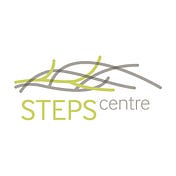STEPS Centre

STEPS Centre
An ESRC Centre exploring how sustainability relates to politics, development, science & technology. Hosted at IDS + SPRU, Sussex University. steps-centre.org

An ESRC Centre exploring how sustainability relates to politics, development, science & technology. Hosted at IDS + SPRU, Sussex University. steps-centre.org